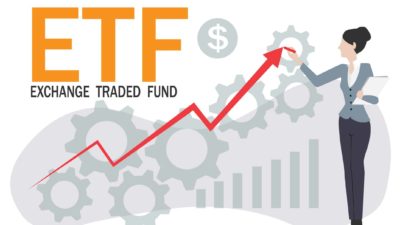The BetaShares Global Quality Leaders ETF (ASX: QLTY) is an exchange-traded fund (ETF) that I'd rate as a top buy right now. There are plenty of individual ASX shares that I like the look of, but ASX ETFs can make excellent investments as well.
Since the start of 2022, 'quality' businesses have suffered their fair share of a decline, like plenty of other assets. Perhaps some investors now feel like they can earn a decent return from more dependable assets than (quality) shares, such as bonds and even cash in the bank.
I'm going to explain what the ETF is first, and then why I think it's a great investment for the current environment.
What is the QLTY ETF?
It's provided by BetaShares, one of the largest ETF providers in Australia.
The BetaShares Global Quality Leaders ETF is invested in 150 global companies outside of Australia that rank the highest on quality score rankings.
There are four factors that it ranks well on – return on equity (ROE), debt to capital, cash flow generation ability and earnings stability.
The positions are fairly equally weighted – it's not as though one position has a 10% weighting as we might see in other international ETFs, such as the Betashares Nasdaq 100 ETF (ASX: NDQ).
Some of the biggest positions at the time of writing, and their weightings, are as follows: Adobe (2.4%), Novo Nordisk (2.4%), Meta Platforms (2.3%), Tesla (2.3%), Cisco Systems (2.2%), Automatic Data Processing (2.2%) and Alphabet (2.2%).
Good performance during regular times
Two of the investment metrics – ROE and cash flow generation ability – are things that I'd like to see from businesses all of the time during an economic cycle.
A high ROE means the QLTY ETF business is making a good amount of profit for how much shareholder money is retained within the business, while good cash flow may be the best sign of how much profit a business is making. I want to see profit translating into cash coming into the bank.
With these two metrics, we're talking about some of the most profitable in the world for what they do.
Healthy balance sheet
With interest rates now a lot higher than they have been for many years, it's suddenly much more important how much debt a business has. Debt has become a lot more expensive, and cash can generate a decent return in the bank account.
Having a low debt-to-capital metric means that these businesses have a very sustainable amount of borrowing on their balance sheets.
If interest rates stay high for a while, the highly indebted businesses may struggle compared to the QLTY ETF holdings.
Businesses with strong balance sheets may be able to snap up competitors for a beaten-down price, further strengthening their position.
Earnings stability
We don't know what's going to happen next. There may be global financial difficulties, or perhaps the global inflation and interest rate hikes won't cause a local or global recession.
Either way, owning businesses that are seen as having stable earnings can be helpful for supporting the share price. Businesses are largely valued on their current and future profit potential – if the profit doesn't take much of a hit, then the share price may hold up better than the average listed business.
Outperformance can happen when markets go down as well as when markets are going up.









